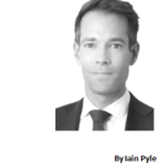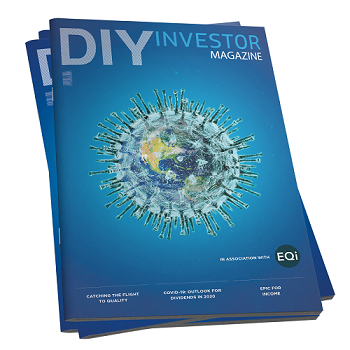A time for caution?


· Markets have significantly recovered from their lows in March
· Some caution is needed with the economic environment still highly uncertain
· At Shires Income, we have sought to build up defensiveness in the portfolio
Markets have staged a remarkable recovery from the savage falls in March. At the time of writing, the FTSE All-Share Index is up almost 20% from its lows. While this is welcome after a period of troubling volatility, we believe that a cautious approach is still warranted, even as countries gradually return to normality.
Countries are slowly returning to a ‘new normal’, but a huge amount of uncertainty remains on the timing and shape of the economic recovery.
There are signs that earnings and growth may recover by 2021, but GDP growth forecasts continue to be revised lower and economic activity is likely to remain subdued.
While the stimulus packages put in place will support growth in the short-term, there are questions over the impact of their removal.
‘maintaining a quality bias across the portfolio’
Much will depend on the future trajectory of the virus. There has been some resurgence even in countries that have handled the virus well, though in general those countries that tackled the virus earlier and with vigour have seen their economies recover more quickly.
Equally, even when the impact of the virus diminishes, there will be other considerations: a potentially fractious and uncertain US Presidential Election, continued weakening in US/China relations, an untidy Brexit. These are all, we believe, reasons for caution in the current environment.
However, how this caution should be reflected in a portfolio is another question.
The virus outbreak has disrupted many investors’ view of what constitutes a defensive portfolio, particularly for income. Previously reliable dividend payers such as banks, mining and utilities have cut their dividends.
'Diversification is another defence’
Estimates from Link Asset Services suggest only around one-third of dividend payments are safe.
We have tried to increase the resilience of our portfolio in a number of ways: the first is by maintaining a quality bias across the portfolio.
This has been useful in the pandemic, keeping us away from the difficult areas – some of our strongest relative performance has been as a result of the companies we didn’t own rather than those we did.
To our mind, quality means strong balance sheets and good cash flow, which gives companies resilience at times of stress. While few could have predicted the virus outbreak, it is possible to build up a company’s defences.
'Active managers should be able to add real value in this environment’
Diversification is another defence. At the start of the crisis, it appeared that the virus would have its biggest impact in Asia, but that has been revised to Europe and then the Americas.
Shires Income is a UK-based portfolio, but we ensure that the sources of revenue for companies in the portfolio come from across the world: as it stands, we have 20% from Asia Pacific, for example, another 27% from the Americas, 21% from Europe and just 28% from the UK.
This also applies to income. UK equity income funds are often criticised for relying on a handful of companies to deliver income. We consciously guard against this type of concentration. The FTSE All-Share Index (our benchmark index) generates around 35% of its income from its top five positions. In Shires Income it is just 20%.
Diversification also applies to a spread of assets. We hold large cap high yield equities, plus a number of growth equity positions (including smaller companies). Our 25%-30% weighting in preference shares is a reliable source of income and capital stability. This allows us to be flexible in other parts of the portfolio.
In terms of the companies we hold, we are looking for those with the ability to deliver growth independent of the macroeconomic outlook.
This drives dividend growth over the longer-term and has to date included companies such as multinational cybersecurity software group Avast or outsourcing group Equiniti. In uncertain times, companies exposed to areas of structural growth will have a natural tailwind.
In an uncertain environment, some caution is needed on the price we pay for any new holdings in the portfolio. Valuations are already looking through to 2021 earnings and the recovery has been remarkably quick. We look for an attractive entry point. There are still opportunities across UK markets, which trade at a discount to their international peers, but careful stock-picking is needed.
As we see it, markets may have come through the easy part of the recovery and may not reflect the level of uncertainty that we believe still exists. Nevertheless, there is significant variation between individual sectors and companies. Active managers should be able to add real value in this environment.
Important information
Risk factors you should consider prior to investing:
• The value of investments and the income from them can fall and investors may get back less than the amount invested.
• Past performance is not a guide to future results.
• Investment in the Company may not be appropriate for investors who plan to withdraw their money within 5 years.
• The Company may borrow to finance further investment (gearing). The use of gearing is likely to lead to volatility in the Net Asset Value (NAV) meaning that any movement in the value of the company’s assets will result in a magnified movement in the NAV.
• The Company may accumulate investment positions which represent more than normal trading volumes which may make it difficult to realise investments and may lead to volatility in the market price of the Company’s shares.
• The Company may charge expenses to capital which may erode the capital value of the investment.
• There is no guarantee that the market price of the Company’s shares will fully reflect their underlying Net Asset Value.
• As with all stock exchange investments the value of the Company’s shares purchased will immediately fall by the difference between the buying and selling prices, the bid-offer spread. If trading volumes fall, the bid-offer spread can widen.
• Certain trusts may seek to invest in higher yielding securities such as bonds, which are subject to credit risk, market price risk and interest rate risk. Unlike income from a single bond, the level of income from an investment trust is not fixed and may fluctuate.
• With funds investing in bonds there is a risk that interest rate fluctuations could affect the capital value of investments. Where long term interest rates rise, the capital value of shares is likely to fall, and vice versa. In addition to the interest rate risk, bond investments are also exposed to credit risk reflecting the ability of the borrower (i.e. bond issuer) to meet its obligations (i.e. pay the interest on a bond and return the capital on the redemption date). The risk of this happening is usually higher with bonds classified as ‘subinvestment grade’. These may produce a higher level of income but at a higher risk than investments in ‘investment grade’ bonds. In turn, this may have an adverse impact on funds that invest in such bonds.
• Yields are estimated figures and may fluctuate, there are no guarantees that future dividends will match or exceed historic dividends and certain investors may be subject to further tax on dividends.
Other important information:
Issued by Aberdeen Asset Managers Limited which is authorised and regulated by the Financial Conduct Authority in the United Kingdom. Registered Office: 10 Queen’s Terrace, Aberdeen AB10 1XL. Registered in Scotland No. 108419. An investment trust should be considered only as part of a balanced portfolio. Under no circumstances should this information be considered as an offer or solicitation to deal in investments.
FTSE International Limited (‘FTSE’) © FTSE 2020. ‘FTSE®’ is a trade mark of the London Stock Exchange Group companies and is used by FTSE International Limited under licence. RAFI® is a registered trademark of Research Affiliates, LLC. All rights in the FTSE indices and/or FTSE ratings vest in FTSE and/or its licensors. Neither FTSE nor its licensors accept any liability for any errors or omissions in the FTSE indices and/or FTSE ratings or underlying data. No further distribution of FTSE Data is permitted without FTSE’s express written consent.
Find out more by registering for updates or by following us on Twitter and LinkedIn
Read the latest edition of DIY Investor Magazine
DIY Investor Magazine
The views and opinions expressed by the author, DIY Investor Magazine or associated third parties may not necessarily represent views expressed or reflected by EQi.
The content in DIY Investor Magazine is non-partisan and we receive no commissions or incentives from anything featured in the magazine.
The value of investments can fall as well as rise and any income from them is not guaranteed and you may get back less than you invested. Past performance is not a guide to future performance.
DIY Investor Magazine delivers education and information, it does not offer advice. Copyright© DIY Investor (2016) Ltd, Registered in England and Wales. No. 9978366 Registered office: Mill Barn, Mill Lane, Chiddingstone, Kent TN8 7AA.
